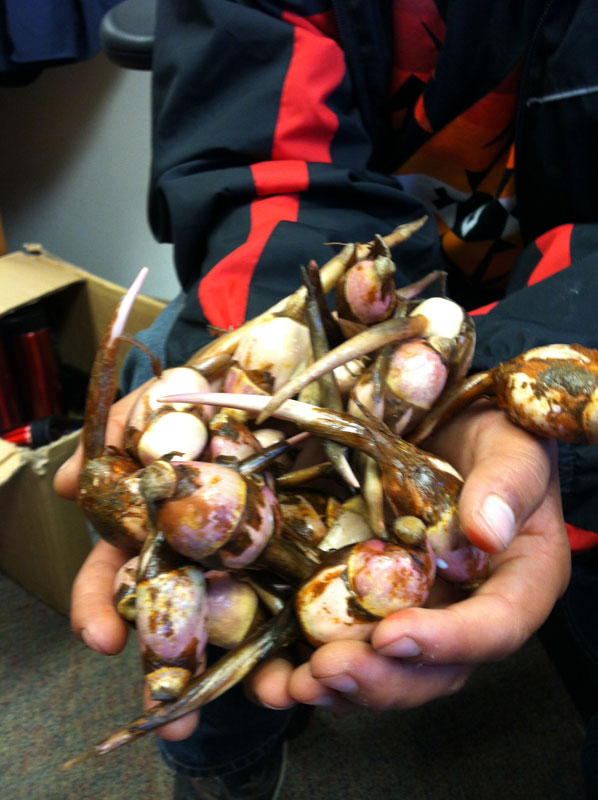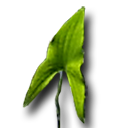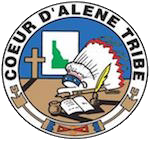Glossary and Bibliography
Snchitsu'umshtsn Term Glossary
- a! huy, his’laqht - literally, "hello, welcome my friend"
- amotqn - literally, "the one who sits at the top of the mountain" - the Creator
- chetche'in'nts - literally, "to reveal" - disclose, uncover
- hischits - literally, “it is my discovery"
- hnkhwelkhwlnet - literally, "our ways of life in the world" - Schitsu'umsh indigenous knowledge and practice (IKP)
- ’itsk’u’lm - to do, to act - to learn by participating
- k’u’lntsutn - literally, "he who makes himself" - the Creator
- lim lemt.sh - thank you
- ‘me‘y‘mi‘y’m - [the act of] telling the stories
- ‘me‘y‘mi‘y’m łu schint - literally, “he/she/they are telling stories and learning about the human beings”
- ‘me‘y‘mi‘y’m q'esp schint - literally, “he/she/they are telling stories and learning about the time before the human beings”
- miyp - teachings from all things - embedded in the landscape and oral traditions, derived from the First Peoples/Animal Peoples
- pitse’ - digging stick
- Schitsu'umsh - literally "the ones that were found here" (referring to Lake Coeur d'Alene) - the Coeur d'Alene people
- sqigwts - water potato, Sagittaria lattifolio
- snqhepi’wes - literally, “where the spirit lives, from horizon to horizon” - the acknowledgement of meaning and power of the spiritual embedded in all phenomena, and in all activities, human, plant, animal, fish, rock and water.
- snukwnkhwtskhwts’mi’ls - literrally "fellow stuffer" - empathy
- snukwnkhwtskhwts’mi’ls ł stsee’nidmsh - empathetic adaptability - a fundamental miyp
- snchitsu'umshtsn - the Schitsu'umsh language - part of the Inland Salish language, related to the Flathead, Kalispel and Spokane languages
- sp’ukhwenichelt - literally, "son of light" - Chief Child of the Yellowrood, a primary culture hero and one of the First People
- stsee’nidmsh - adaptabilty
- spute’m - to show respect
- sqha’wlutqhwe’ - camas - Camassia quamash
- stmi’sm - to listen - to learn by being attentive
- tsi'łhnkhukhwatpalqs - literally, "there, the end of the trail" - told at the conclusion of telling a story
- uchnek’we’ - literally, “we are all relatives/we are all one,” or as sometimes referred to as chnisteemilgwes - “I am your relative,” part of all peoples – human, plant, animal, fish peoples.
- unshat'qn - literally, “we’re all equal height at the head; eye-to-eye” - we are all equal to one another, human, plant, animal, fish peoples, none are better than another.
Bibliography For a printable copy of the ![]() Bibliography.pdf
Bibliography.pdf
Agarwal, A. Indigenous knowledge and the politics of classification. UNESCO, Oxford UK, 2002.
Aripa, Lawrence, Tom Yellowtail, Rodney Frey, and et alia. Stories That Make the World: Oral Literature of the Indian Peoples of the Inland Northwest as told by Lawrence Aripa, Tom Yellowtail and other Elders. University of Oklahoma Press, 1995. (presenting a collection of stories in "poetic" format, with background on the act of storytelling and its dynamics)
Berkes, Fikret. Sacred Ecology. 3rd Edition. Routledge, 2012.
Christen, KA. "Does information really want to be free? Indigenous knowledge systems and the question of openness." International Journal of Communication, 6: 2870-2893, 2012.
Climate and Traditional Knowledges Workgroup (CTKW). "Guidelines for Considering Traditional Knowledges in Climate Change Initiatives." version 1.0 September 2014.
Coeur d’Alene Tribe's Home Page. "Schitsu’umsh “those that were found here".
Coeur d’Alene Tribe’s Online Language Resource Center. "COLRC".
Doak, Ivy. "Reichard’s Coeur d’Alene Texts". 2006.
Frey, Rodney. "Coeur d’Alene (Schitsu’umsh)", American Indians of the Pacific Northwest, Library of Congress and University of Washington Library (Ameritech National Digital Library Project). 2000.
Frey, Rodney and et alia. "Huckleberries: Stories from the American Indian Experience" (a personal memoir). Manuscript 2014.
![]() Intellectual Property and Traditional Knowledge Agreement.pdf
Intellectual Property and Traditional Knowledge Agreement.pdf
Mason, Larry, and et alia. “Listening and Learning from Traditional Knowledge and Western Science: A Dialogue on Contemporary Challenges of Forest Health and Wildfire.” Journal of Forestry. June 2012.
Palmer, Gary, Lawrence Nicodemus and Lavinia Felsman. Khwi' Khwe Hntmikhw'lumkhw: This is My Land. Coeur d'Alene Tribe, 1987.
Palmer, Gary, Lawrence Nicodemus and Thomas Connolly. Khwi Khwe Guł Schitsu'umsh: These are the Coeur d'Alene People. Coeur d'Alene Tribe, 1987
"Plateau People’s Web Portal." Washington State University's Libraries, Manuscripts, Archives and Special Collections.
Reichard, Gladys. "Coeur d'Alene Texts," Part II, xvii-xxiv. University of Indiana, Archives of Languages of the World, Bloomington, 1946.
Reichard, Gladys. An Analysis of Coeur D’Alene Indian Myths. Philadelphia: American Folklore Society 1947.
Schitsu’umsh and Rodney Frey. Landscape Traveled by Coyote and Crane: The World of the Schitsu’umsh (Coeur d’Alene Indians). University of Washington Press, 2001. (overview of the culture, history and oral traditions, from the perspective of the Schitsu'umsh)
Schitsu’umsh and Rodney Frey. Schitsu’umsh (Coeur d’Alene Indians): Lifelong Learning Online. Coeur d’Alene Tribe, National Aeronautics and Space Administration, and the University of Idaho. Tribal Council Review Approval, December 2002. (introduction to the culture, with streaming video interviews with elders; Download free RealPlayer Cloud to access interviews)
Teit, James. "Folk-Tales of the Salish and Sahaptin Tribes." Memoirs of the American Folk-Lore Society, 11. Lancaster, Pennsylvania, 1917.
Teit, James. "The Salish Tribes of the Western Plateaus." Forty-Fifth Annual Report of the Bureau of American Ethnography from 2917-28, pp. 23-396. Smithsonian Institution, 1930.
Copyright: Coeur d’Alene Tribe and University of Idaho 2015.




